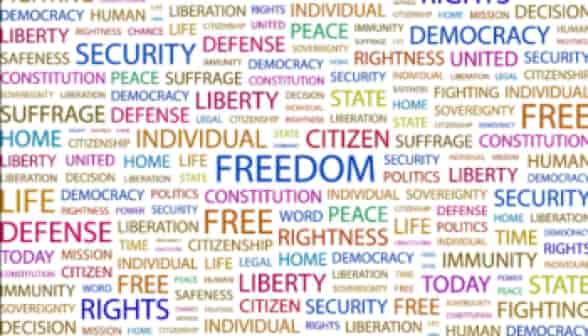#Introduction To Judicial activism
As per the Constitution of India, the State plays a primary role in ensuring justice, liberty, equality and fraternity in the country. The state is duty bound to protect the individuals fundamental rights and implement the Directive Principles of State Policy(DPSP’s). In order to restrain the State from escaping its responsibilities, the Indian Constitution has conferred inherent powers, for reviewing the State’s action on the courts. According to which, the Indian judiciary has been considered as the guardian and protector of the Indian Constitution. Considering its constitutional duty, the Indian judiciary has played an active role, whenever required, in protecting the individuals’ fundamental rights against the State’s unjust, unreasonable and unfair actions/inactions.
The concept of ‘Judicial Activism’ as per the Black’s Law Dictionary is enumerated as “a philosophy of judicial decision-making whereby judges allow their personal views about public policy, among other factors, to guide their decisions, usually with the suggestion that adherents of this philosophy tend to find constitutional violations and are willing to ignore precedent”.
The Constitution of India stipulates as a welfare Constitution and it has created three organs for the attainment of that purpose being:
i. Legislative bodies
ii. Executive bodies
- Certificate Course in Labour Laws
- Certificate Course in Drafting of Pleadings
- Certificate Programme in Train The Trainer (TTT) PoSH
- Certificate course in Contract Drafting
- Certificate Course in HRM (Human Resource Management)
- Online Certificate course on RTI (English/हिंदी)
- Guide to setup Startup in India
- HR Analytics Certification Course
iii. Judicial bodies
As per the separation of power neither of bodies are considered superior to the other. The Indian constitution however doesn’t provide for extremely rigid separation of power unlike the American constitution rather it accepts the possibility of overlapping. Though, it nowhere establishes superiority of any organ upon the other.
However, the very fact that the court has been provided the duty to ensure that violation of rights do not take place and if they happen remedy shall be provided and also the duty to interpret the Constitution in itself gives such a position to the Supreme Court that it may at least direct the other organs to fulfill their legal duties. The Supreme Court has been created as the protector and guarantor of the fundamental rights through article 32 and 142 and the concept of distributive justice requires that fundamental rights should not only be enforced in the cases of violation rather they shall be enforced even by creating circumstances to avoid the violation. The primary duty to do so lies upon the executive and the legislature and if it’s found that they are not fulfilling their duties due to their sheer unwillingness Though the resources and circumstances are available then the court can remind them of their duties and also bind them by issuing directions orders and rates to fulfil their constitutional duty enforced upon them.
Judicial activism is not about judiciary taking a superior position upon the other organs rather it is merely about ensuring that violation of fundamental rights do not take place or in words judiciary is the watchdog of the fundamental rights. The court has to ensure that there shouldn’t be allowed a situation of constitutional failure as that would result into the loss of public faith upon the Constitution and the government also.
Consequently, it would violate the doctrine of public trust therefore it is clear that the High Court and Supreme Court play a positive role in the working of the constitutional machinery.
Judicial activism is about playing a proactive role by the court so as to ensure that the Conservation of fundamental rights of people and for which the other organs of the government would be reminded of their duty to be performed.
The court also has to keep in mind that the Constitution of India is not about conflict of interest rather it is about the harmonious coexistence Of both the bodies and the attainment of larger goals.
The broad spirit of doctrine of separation of power has to be maintained as long as judicial activism is in the spirit of preventing constitutional failure and exerting the dominance of the Constitution. However the moment judicial activism is done with the intention of showing judicial supremacy it would become unconstitutional neither of the organs is superior to the other.
Therefore, Judiciary is expected to act within the self-restraint as long as these principles are being followed within judicial activism it is constitutional and also the only objective should be to attain fraternity among the bodies.
- Certificate Course in Labour Laws
- Certificate Course in Drafting of Pleadings
- Certificate Programme in Train The Trainer (TTT) PoSH
- Certificate course in Contract Drafting
- Certificate Course in HRM (Human Resource Management)
- Online Certificate course on RTI (English/हिंदी)
- Guide to setup Startup in India
- HR Analytics Certification Course

